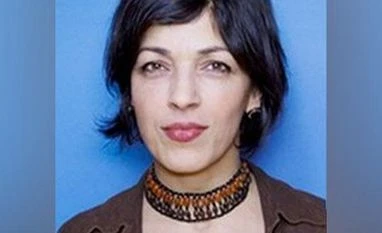Rina Amiri, the US special representative for Afghan girls, women and human rights, has described the humanitarian situation in Afghanistan as "a great tragedy" and urged the Islamic countries to raise their voice.
"Rina Amiri, the US special representative for Afghan girls, women and human rights, called the humanitarian situation in Afghanistan "a great tragedy" and called on Islamic countries, especially Saudi Arabia, to respect women's rights and human rights in Afghanistan. to raise the voice," TOLO News reported citing the Saudi Gazette newspaper.
Amiri also said that women and girls have the right to education, work and public participation and called on the Islamic Emirate to fulfil the commitments of the Doha Agreement.
Recently, the UN Under-Secretary-General for Humanitarian Affairs and Emergency Relief Coordinator, Martin Griffiths had said that the situation of Afghan women and girls is regressing and also called out the Taliban for reopening girls' schools.
"Women and girls are facing alarming rollback on their rights," said Martin Griffiths.
"Girls' schools have been closed to female students for a year. One of the presidents of India has said that "Even if I die, don't close girls' schools because a generation will miss one day of education," Khaama Press reported citing a student, Shabana. "I ask them to reopen schools, it is our right and we have to get our rights," said Parwana, another student.
Previously, Amnesty International has said that women and girls have been stripped of their rights and face a bleak future, according to Khaama Press.
More From This Section
"Arbitrary detentions, torture, disappearances, summary executions have returned as the order of the day. Women and girls have been stripped of their rights and face a bleak future, deprived of education or the possibility of taking part in public life," Amnesty International's South Asia Regional Director, Yamini Mishra said.
"The doors of the schools have been closed for a year, while officials and international organizations worsen the situation, and none of them takes any concrete effort to get out of this situation," said Ai Noor Uzbek, a women's rights activist, condemning the situation in Afghanistan.
Since the Taliban took over Afghanistan, the plight of Afghan women has worsened in the country. Contrary to the Taliban's claims, girls were stopped from going to school beyond sixth grade on March 23 and a decree against the women's dress code was issued after a month. There are restrictions on movement, education and freedom of expression of women posing a threat to their survival.
Not only this, the lack of female healthcare workers has prevented the women from accessing basic medical facilities, and the international donors, who fund 90 per cent of health clinics, are hesitant to send money because of their fear of the funds being misused.
Around 80 per cent of women working in the media have lost their jobs, and almost 18 million women in the country are struggling for health, education and social rights.
)